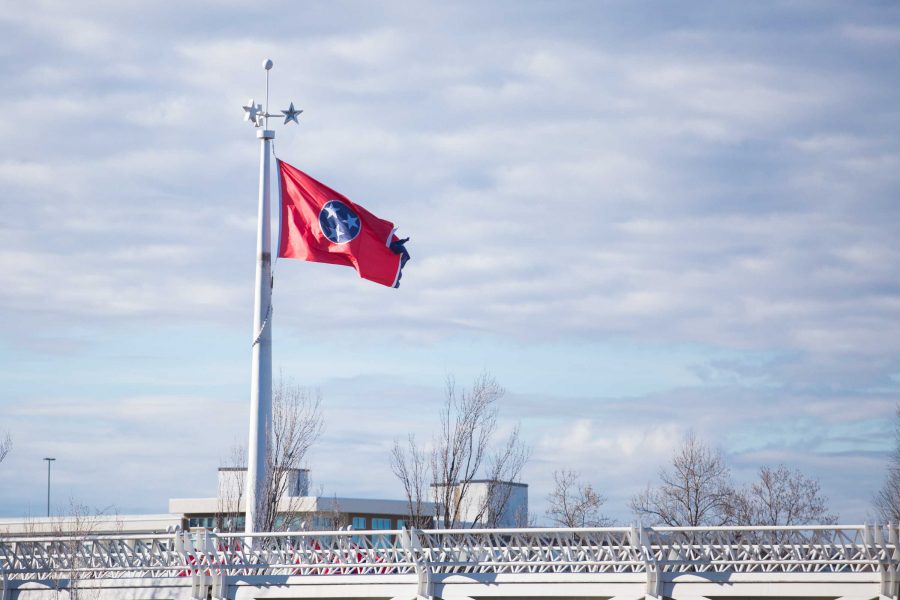The last competitive election in Tennessee was in 2006– until now. A Vanderbilt Poll reveals the current bid for Tennessee’s U.S. senate seat to be a horse-race, in contrast to other recent polls depicting a significant gap.
The Vanderbilt Poll released a midterm poll Oct. 28 highlighting the Tennessee senate race as extremely close, with Phil Bredesen (D) leading Marsha Blackburn (R) by 1 point. Bredesen captured 44 percent over Blackburn’s 43 percent. The poll also showed Bill Lee (R) leading Karl Dean (D) by 11 percent for the state governor seat.
The Vanderbilt Poll is part of the school’s Center for the Study of Democratic Institutions, created in 2011. The Poll is non-partisan scientific study of public opinion based in Tennessee and the Nashville area. Most of the polls focus on public policy issues, rather than election results. Political Science Professor and Vanderbilt Poll Co-Director Josh Clinton was interested in polling this election after other poll results indicated gaps larger than he thought possible, such as the New York Times poll that had Blackburn up by 14 points, he said.
The poll surveyed Tennessee registered voters from Oct. 8 through Oct. 13, calling both cell phones and landlines. About 800 people picked up, resulting in a response rate of about 10 percent, which is fairly high, Clinton said.
The margin of error in the poll was about 5 percent, meaning that if the poll was conducted over and over again with the same methodology and the same interpretative guidelines, then the results would vary by within 5 percent, Clinton said.
“That means that I would not call this race,” Clinton said. “When you have a one point difference, and 8 percent are undecided, and you’ve got a margin of error of like 5 percent, who knows?”
The poll also looked at breakdowns across certain demographic groups. These are particularly important when thinking about election outcomes, as certain victories will rely on certain groups turning out, John Geer, Dean of the College of Arts and Sciences and Co-Director of the Vanderbilt Poll, said.
Two of the most notable results of the poll included the evidence of an increasing gender gap between the candidates and Bredesen’s success in gaining support from Republicans, Geer said. Women support Bredesen 49-37, and men prefer Blackburn with an almost exactly opposite split, 50-37. The extent of the gender gap is particularly surprising given Tennessee’s typical Republican loyalty; the shift is partly attributable to suburban women, who aren’t satisfied with the direction of the GOP, Geer said.
Further, 13 percent of surveyed Republicans said they intend on voting for Bredesen. If this materializes in the election, Bredesen has a good shot of winning, but if he loses this support, a lead would be difficult to hold, Geer said. Clinton emphasized that the election results come down to which of these groups actually turnout; while 90 percent of those surveyed said they would vote, not all of those people will really vote on Tuesday.
“Who’s going to [show up] on election day? Nobody knows. And anyone that says they do know is full of it,” he said. “You can guess, but all you’re doing is guessing.”
Irrespective of who ultimately turns out to vote, the unexpectedly competitive election is generating a lot attention statewide and beyond. This election had more than double the amount of early votes than there were in the 2014 midterm, including a 700 percent spike in early votes from voters aged 18-30, according to a Nov. 3 article from News Channel 5. Further, popular figure Taylor Swift broke her political silence to endorse Bredesen, indicating the far reach of this election, Geer said.
If you don’t show up on election day, then your voice isn’t going to be heard and you’re not going to be able to influence.
All factors considered, polls can be helpful in drawing attention to close races, but they aren’t as important as many people may think, Clinton said. Given the level of error and uncertainty, as well as their historic inaccuracy, people have to be careful when weighing the importance of their results.
“They’re there and they’re kind of interesting and we like to talk about them because we love numbers. And as human beings, we love our team versus the other team,” Clinton said. “We like to score points and kind of see what the score is. But they become bad if they become distracting from what really matters in our democracy, and that’s people getting out there and participating and kind of making your voice heard. If you don’t show up on election day, then your voice isn’t going to be heard and you’re not going to be able to influence.”
On campus, students affiliating with different parties had varying reactions to the poll. Vanderbilt College Republicans Vice President Paul Durakiewicz noted that other polls have given Blackburn a significant lead. He also questioned some of the methodological decisions behind the poll and their political biases.
Alternatively, Vanderbilt College Democrats Vice President Will Newell reiterated that polls should be viewed cautiously, as different polls can say different things. Rather than focusing on polling results, students should channel their energy into volunteering and voting, he said.
“If I see that a really high quality poll has one of my favorite candidates in the lead, I get excited, but I have to remind myself to channel that excitement into action and not complacency,” he said.
Clinton echoed this message of the importance of students showing up to vote. Students and young people form a significant part of the population but typically participate in low percentages. If students decide to turn out, they could have a significant impact on the outcome of the upcoming elections, he said.
“If you don’t like the way politics are in the country, in whatever direction, the only way to kind of change that is to get involved,” he said. “Especially among students, it’s like you’re a huge, important voice to our society and our country, so get out there and then vote.”













